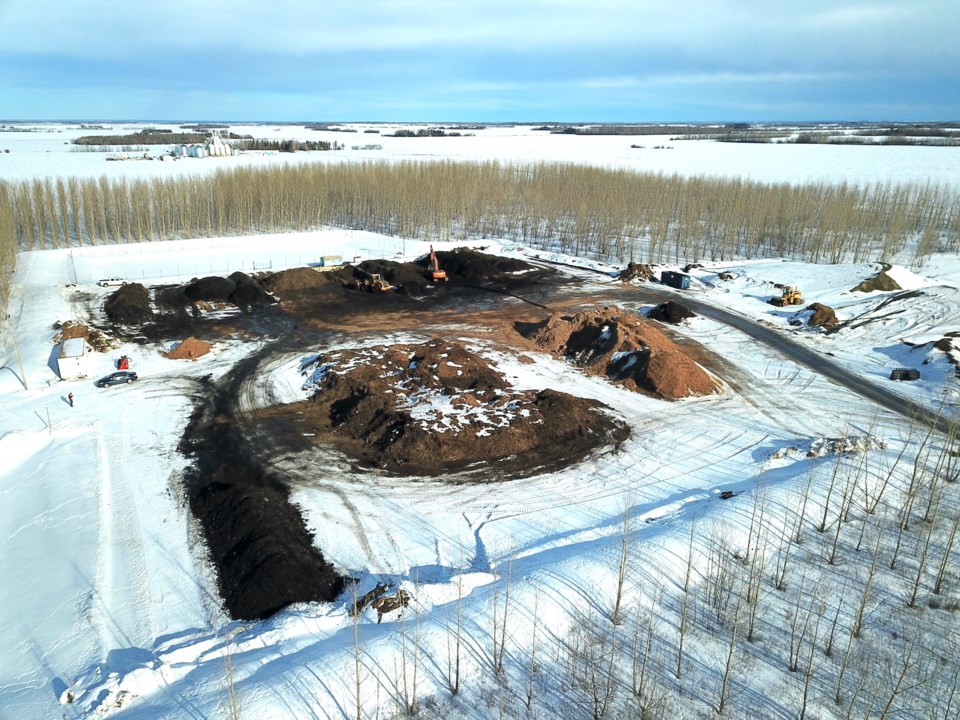WESTLOCK – Westlock-based, Alternative Root (AltRoot) is looking to turn 20,000 pounds of organic waste into nutrient-rich compost.
Town of Westlock council heard a presentation March 21, from Brian Wonnacott and Colby Hansen of AltRoot during a committee of the whole meeting.
“Through a lot of work, we now have a class one compost facility there, located at the Westlock landfill and …we’re making compost,” said Brian Wonnacott. “We’re still learning a few things here and there about the process but things are doing really well.”
The new compost facility can accept up to 20,000 tonnes of organic waste a year, which will be turned into compost. Accepted waste streams include curbside food (organic) waste, commercial food (organic) waste, leaf and yard waste, garden waste, non-construction wood waste and animal bedding materials.
“Twenty thousand tonnes a year of feed stock, that’s what we can intake and … through screening and the material breakdown, it usually works out to be about half — 10,000 tonnes a year of finished compost,” explained Wonnacott. “There’s five main ways to produce compost, different processes and what we’ve designed out there is specifically for municipal, organic waste.”
AltRoot has partnered with the Westlock Regional Waste Management Commission to compost organic waste and is currently working with several area municipalities to do the same, including Edmonton and Leduc, among others.
During the presentation, Wonnacott described how compost is made with their composting system on site, using covered aerated static pile (CASP) technology.
“There’s big HDP pipes and blowers that push air into the pile…microbes, which make compost need water, air, food and shelter,” he added, noting with this design all the material breaks down quickly.
AltRoot composting will provide local regenerative farm initiatives that grow healthier crops and livestock, produce local nutrient dense food, sequester carbon in the soil and contribute to greenhouse gas reduction at landfills.
“Our goal is soil health and the need for compost first,” said Wonnacott.
AltRoot partner and farmer, Colby Hansen spoke on the importance of regenerative agriculture.
“With everything that’s going on in the world, we need to find these waste products that we can turn into fertilizer and soil amendments,” said Hansen. “We want to produce more compost for more farmers….we believe that the best place for these organics is going back into the soil and producing healthy food for people and also educating other farmers, as well as urban and rural (residents).”
Council asked about the 20,000-tonne limit, where they see compost numbers growing in the future, about the market for compost product beyond the region and outside of Canada.
Mayor Ralph Leriger asked about immediate future plans for addressing commercial food waste and what that may look like. Coun. Laura Morie said she was fascinated with the business and could see many possibilities.
“There’s already programs to separate organics for residential but there is none for commercial. It’s a big problem and it needs to get out of the waste stream (so) we can utilize it,” said Hansen. “That’s short term, but long-term…first of all, the commercial food waste should be given to the homeless or people in need, the next stream should be to the animals and livestock.”
Councils from the Town of Westlock, Westlock County and Village of Clyde are scheduled to tour the new compost facility and operations in April.



